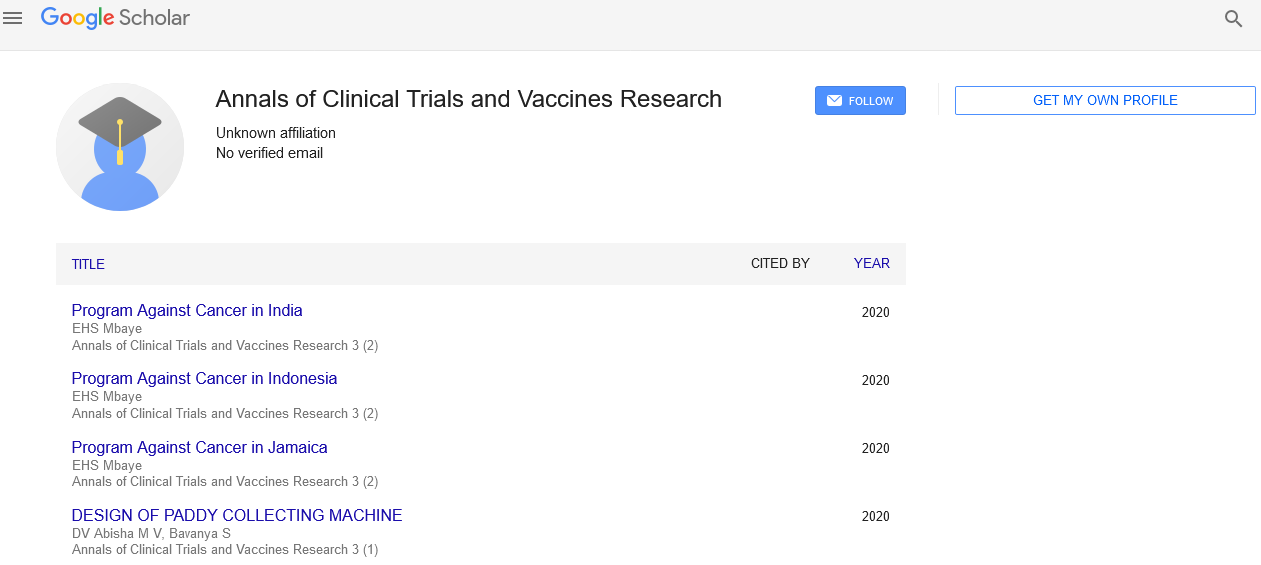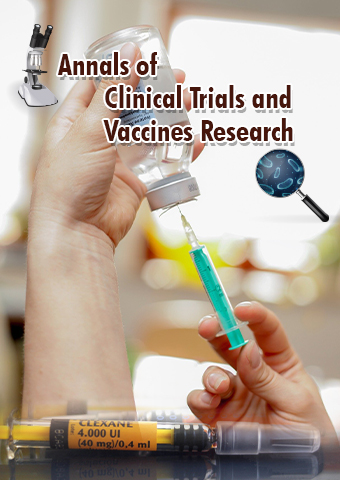Perspective - Annals of Clinical Trials and Vaccines Research (2023) Volume 6, Issue 6
The Role of Public-Private Partnerships in Vaccine Development
- Corresponding Author:
- Bin Yu
Department of Medicine, Voronezh State University, Voronezh Oblast, Russia
E-mail: Binyu@jlu.edu.cn
Received: 10-Nov-2023, Manuscript No. ACTVR-23-121651; Editor assigned: 13-Nov-2023, PreQC No. ACTVR-23-121651 (PQ); Reviewed: 27-Nov-2023, QC No. ACTVR-23-121651; Revised: 04-Dec-2023, Manuscript No. ACTVR-23-121651 (R); Published: 11-Dec-2023, DOI: 10.37532/ACTVR.2023.13(6).173-174
Introduction
Public-Private Partnerships (PPPs) have emerged as powerful instruments in the realm of vaccine development, offering a collaborative approach to address complex global health challenges. The dynamic interaction between public and private entities brings together diverse resources, expertise, and capabilities to accelerate the research, development, and distribution of vaccines. This essay explores the multifaceted role of PPPs in vaccine development, examining their contributions, challenges, and implications for global public health.
PPPs in vaccine development facilitate collaboration between governmental agencies, non-profit organizations, and private entities such as pharmaceutical companies and research institutions. The shared goal is to harness collective strengths to overcome barriers that may impede progress in vaccine research and delivery. The advantages of such partnerships are evident across various stages of vaccine development.
Description
In the early stages, PPPs play a pivotal role in funding and supporting basic research. Public funding agencies, such as the National Institutes of Health (NIH) in the United States, often collaborate with private research institutions to explore novel vaccine candidates. This collaborative approach enables the pooling of intellectual and financial resources, increasing the likelihood of breakthroughs in understanding infectious diseases and developing innovative vaccine platforms.
As vaccine candidates progress through preclinical and clinical trials, the involvement of private pharmaceutical companies becomes instrumental. The high costs associated with large-scale clinical trials and manufacturing necessitate the expertise and financial backing of the private sector. Through PPPs, governments and non-profit organizations can share the financial burden with industry partners, ensuring that promising vaccine candidates advance through the development pipeline.
PPPs also contribute to addressing specific challenges in vaccine development, such as those related to neglected tropical diseases. Organizations like the Global Alliance for Vaccines and Immunization (GAVI) collaborate with pharmaceutical companies to incentivize the development of vaccines for diseases that may not attract significant market interest. This alignment of public health goals with private sector capabilities fosters a more equitable approach to vaccine research and development.
The global response to the COVID-19 pandemic provides a recent and notable example of the critical role played by PPPs in expediting vaccine development. Initiatives like operation warp speed in the United States and the Access to COVID-19 Tools (ACT) Accelerator, a global collaboration, demonstrated how governments, international organizations, and pharmaceutical companies could work together to achieve unprecedented timelines for vaccine development, regulatory approval, and distribution.
In addition to financial contributions, private sector involvement brings essential technical expertise in vaccine manufacturing, quality control, and distribution. Pharmaceutical companies possess the infrastructure and capabilities required to scale up production and ensure the consistent quality of vaccines. This collaboration is particularly crucial in addressing challenges related to the manufacturing and distribution of vaccines on a global scale.
PPPs also contribute to enhancing vaccine access in Low and Middle-Income Countries (LMICs). Organizations like GAVI and the Coalition for Epidemic Preparedness Innovations (CEPI) work with pharmaceutical companies to facilitate the availability of vaccines at affordable prices for countries with limited resources. Through mechanisms like advance purchase agreements and tiered pricing, these partnerships aim to ensure equitable access to life-saving vaccines.
Despite the evident advantages, PPPs in vaccine development face certain challenges. One such challenge is the need to navigate complex intellectual property issues. Private companies often invest significant resources in research and development, and protecting their intellectual property is crucial for sustaining innovation. Balancing the interests of private entities with the global public health imperative of ensuring widespread vaccine access requires careful negotiation and consideration of alternative models, such as open-source approaches.
Another challenge is the potential for conflicts of interest between public health goals and profitdriven motives. Pharmaceutical companies operate within market-driven frameworks, and concerns may arise about their commitment to affordable pricing and equitable distribution. Transparent governance structures and clear agreements within PPPs are essential to address these concerns and align the interests of all partners toward shared public health objectives.
The long-term sustainability of PPPs also poses a challenge. These partnerships are often formed in response to specific health crises or emergencies, and sustaining collaboration beyond these immediate needs requires ongoing commitment from all involved parties. Establishing frameworks that incentivize continued collaboration, even in the absence of acute crises, is crucial for building resilient systems for vaccine research and development.
Ethical considerations in PPPs include ensuring that the benefits of vaccine development are equitably distributed. This involves addressing issues of vaccine nationalism and ensuring that access to vaccines is not determined solely by a country’s economic power. Additionally, transparency in decision-making processes and clear mechanisms for addressing conflicts of interest contribute to the ethical foundation of PPPs.
Conclusion
The role of PPPs in vaccine development is multifaceted and impactful. These partnerships leverage the strengths of both public and private sectors to accelerate research, navigate financial challenges, and enhance global vaccine access. As demonstrated by recent efforts in response to the COVID-19 pandemic, PPPs have the potential to drive innovation, address pressing public health needs, and contribute to a more equitable distribution of life-saving vaccines. Navigating challenges and upholding ethical standards are essential for maximizing the benefits of PPPs in advancing global health outcomes.

